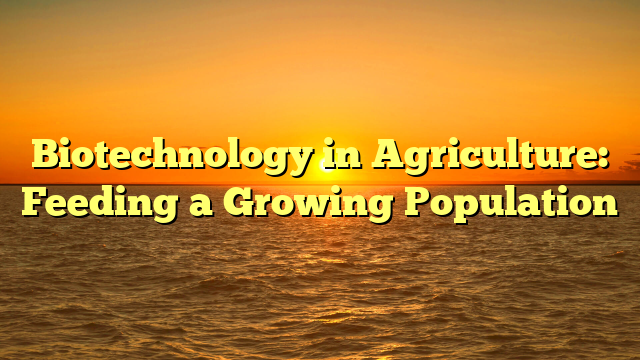The world’s population is projected to reach nearly 10 billion by 2050, putting immense pressure on food systems. Biotechnology offers otpklik promising solutions to improve agricultural productivity, sustainability, and resilience.
One of the most significant contributions of biotechnology is genetically modified (GM) crops. These crops are engineered to resist pests, tolerate drought, and increase yields, reducing the need for chemical pesticides and fertilizers. Examples include pest-resistant cotton and drought-tolerant maize.
Biotechnology also plays a role in developing biofertilizers and biopesticides. These eco-friendly alternatives reduce reliance on harmful chemicals, protecting soil health and biodiversity.
In addition, biotechnology supports food security through crop fortification. Golden Rice, enriched with Vitamin A, is an example of how genetic engineering can address nutritional deficiencies in vulnerable populations.
Advances in lab-grown meat and plant-based proteins are reshaping agriculture as well. These innovations reduce the environmental impact of livestock farming while providing sustainable protein sources.
However, biotechnology in agriculture is not without controversy. Concerns about safety, biodiversity, and corporate control of seeds have sparked debates worldwide. Regulation and transparency are essential to ensure responsible use.
In conclusion, biotechnology is vital in meeting the challenges of global food demand. By improving crop resilience, reducing environmental impact, and enhancing nutrition, it offers pathways toward a more secure and sustainable food system.
